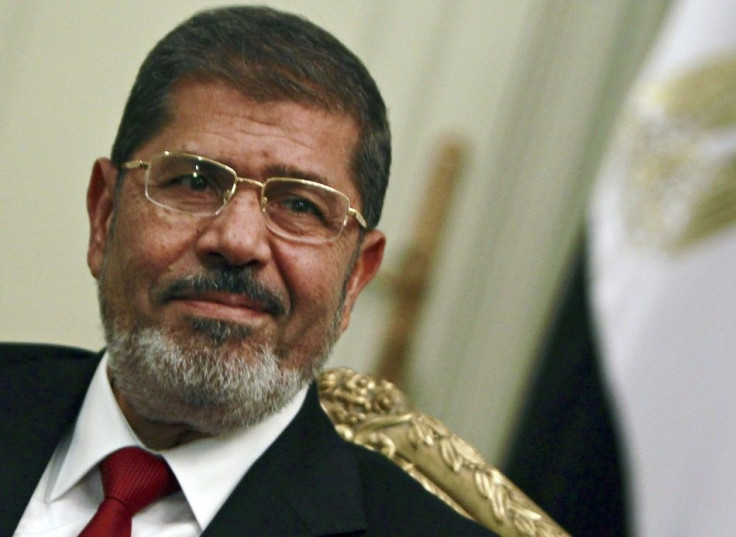Courting Cairo? Tehran Invites Egypt’s Morsi To Iranian Nuclear Facility

Egyptian President Mohamed Morsi will visit one of Iran's nuclear facilities this week, according to a Sunday statement from Mansour Haqiqatpour of the Iranian Committee on National Security and Foreign Policy.
Morsi is one of more than 120 world leaders attending the Tehran summit of the Non-Aligned Movement, or NAM. His presence there, and his scheduled visit to a nuclear facility, adds to growing speculation about Egypt's future relationship with the Islamic Republic.
"One of Iran's programs on the sidelines of the NAM summit is inviting heads of state to visit Iran's nuclear facilities," said Haqiqatpour during an interview with Iranian English-language news outlet Press TV.
He added that Morsi's visit was "in line with countering propaganda against the Islamic Republic and their baseless claims about Iran's attempts to obtain nuclear weapons," according to Haaretz.
Morsi's visit is of particular interest to Western powers like the United States and Israel, both of whom are wary of Egypt's new Islamist government and fearful it may renounce the 1979 peace treaty honored by the previous Sadat and Mubarak regimes. A Tehran alliance could pull Cairo in the opposite direction, as Iran is a sworn enemy of Israel and the United States.
Iran maintains its nuclear technology program is for peaceful purposes only, but outside observers -- including Israel and the United States -- suspect that a serious pursuit of nuclear weapons is under way.
Iran is notoriously resistant to international inquiries, and Tehran officials once again failed to reach an agreement with the International Atomic Energy Agency on Friday regarding inspections of several new uranium enrichment centrifuges at the Fordow facilities, near the city of Qom.
Morsi is scheduled to visit a nuclear plant in the town of Bushehr. That facility, which became operational last year, was the first civilian nuclear power plant to open in the Middle East. Morsi's invitation to the facility so soon after IAEA's failure to pursue inspections at Fordow is a clear indication of Iran's diplomatic priorities.
Egyptian state news agency MENA reported that Morsi will touch down in Tehran on Thursday. This will be the first visit of an Egyptian head of state to Iran in more than 30 years.
The two countries saw a diplomatic split following the 1979 Iranian Revolution, when Tehran's secular Shah Mohammad Reza Pahlavi was overthrown in favor of a theocratic Islamic republic. Now that formerly secular Egypt has had a revolution and installed a majority Islamist government of its own, two of the Middle East's most influential states may find reason to mend their decades-long rift.
But Egypt, with its majority of Sunni Muslims, could also side with the Sunni-led states of the Arabian Peninsula. The monarchies of such countries as Kuwait, Saudi Arabia and Oman are allied to the United States and distrustful of Iran's Shia clerical regime.
Iranian Foreign Ministry spokesman Ramin Mehmenparast spoke only vaguely about the import of Morsi's historic visit.
"The presence of the Egyptian president in Tehran will help develop Tehran-Cairo relations," he said, according to the Israeli newspaper Haaretz.
The NAM summit, which kicked off on Sunday, will run until Friday. Leaders of NAM member countries, as well as delegates of several international organizations including the United Nations and the Arab League, will discuss issues related to global peace, nuclear nonproliferation, and a resolution to the civil war in Syria.
NAM sees itself as a peacekeeping organization made up of small or developing states that have been otherwise marginalized by global superpowers.
© Copyright IBTimes 2025. All rights reserved.






















